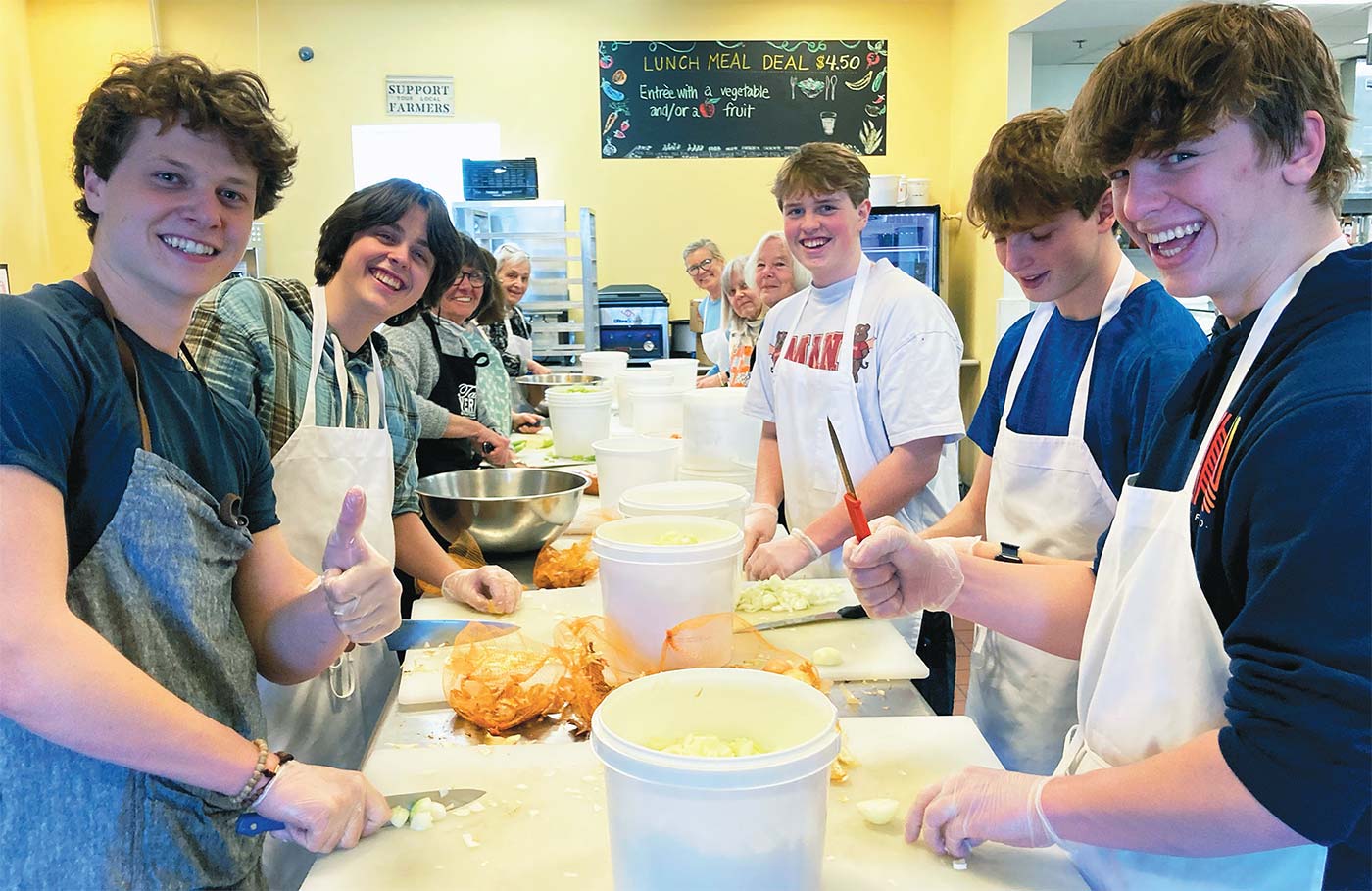Grateful Hearts: Manchester Miracle
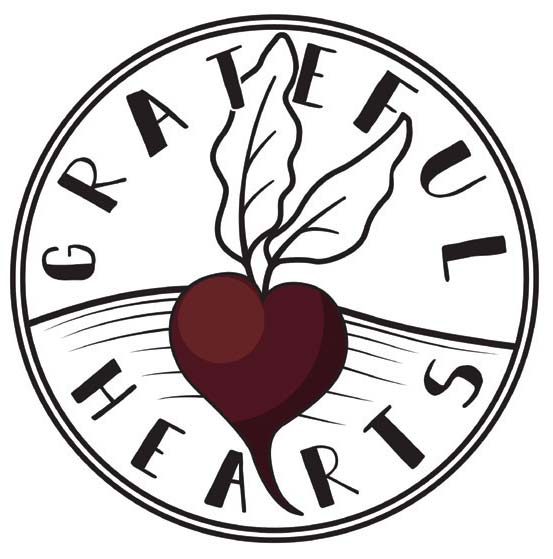 It’s winter in Vermont. Snowflakes swirling in the wind perform a chaotic dance. But as they blanket the land, they create a sense of order.
It’s winter in Vermont. Snowflakes swirling in the wind perform a chaotic dance. But as they blanket the land, they create a sense of order.
A beautifully chaotic dance happens every week in Manchester within a nonprofit group known as Grateful Hearts, or GH for short. Grateful Hearts began with one man’s vision in 2010. Dale Coppin was disturbed at how much perfectly good food was being discarded when it could be going to help feed people in need. So he came up with a plan and found the right people to help him make it a reality.
Grateful Hearts specialty? Taking fresh produce that might otherwise go to waste and transforming it into delicious, healthy, ready-to-eat and frozen meals that are distributed to food pantries and social service agencies in the Manchester region of southwestern Vermont. Sounds simple, doesn’t it? It’s not. In the beginning a handful of people were cooking food in a local church and producing a couple of hundred meals per year. Head chef Kate Ebbott ran the show from 2016 to 2022, steadily increasing production. Kate now oversees a second Grateful Hearts entity she started in Bennington. Last year Grateful Hearts generated 30,000 servings. How did this happen?
There is more energy at the Burr & Burton Academy kitchen than there is at a Taylor Swift concert.
On a late November afternoon, I joined my wife, Alison, who’s been a part of GH for a year and a half, to see just what happens when a group of cheerful volunteers from all walks of life come together to do what they call “Chop & Chat.”
There is more energy at the Burr & Burton Academy kitchen than there is at a Taylor Swift concert. By 3:00 p.m., the kitchen is filled with about a dozen “Chop & Chatters” who are already busy at their respective tasks. Two BBA seniors are chopping carrots. Other volunteers are dicing onions, peeling ginger and working on the myriad tasks of the day.
The menu that day included curried butternut squash soup; roasted root veggies in an herb vinaigrette; three-bean vegetarian chili; Misty Knoll chicken legs with roasted potatoes, braised kale, and maple-glazed carrots; poblano peppers stuffed with brown rice, black beans and cheddar cheese; frittata packed with veggies; and whole wheat pumpkin ginger chocolate chip muffins. Each week, the team cranks out an average of 1,000 servings of restaurant quality meals like these.
The crew may not know what ingredients they will have until the last minute. “-ish” is a popular word in the room; as in “we have a recipe-ish that we use.” Creativity, vision, and energy are on full display accompanied by a sense of friendship and camaraderie rarely seen.
Barbara Morrow, cofounder of Manchester’s renowned Northshire Bookstore, found her way to Grateful Hearts in June 2020. “Coming here to help out is the highlight of my week. This is a light crew tonight, but we’ll get it done,” Barbara reassures me. The can-do attitude permeates the entire team. People are chatting away, hustling pans out of the ovens onto cooling racks, stirring pots on the 12-burner stove, processing and packaging food for distribution the next day. The room is a blizzard of activity. It’s clear to the casual observer that everyone is thoroughly enjoying themselves.
BBA seniors Henry Sexter and Oakley Robbins take time out of their active lives to volunteer. When asked why, they replied, “It makes us feel good.” Oakley’s grandmother got him involved. The young men often bring a slew of friends with them to help.
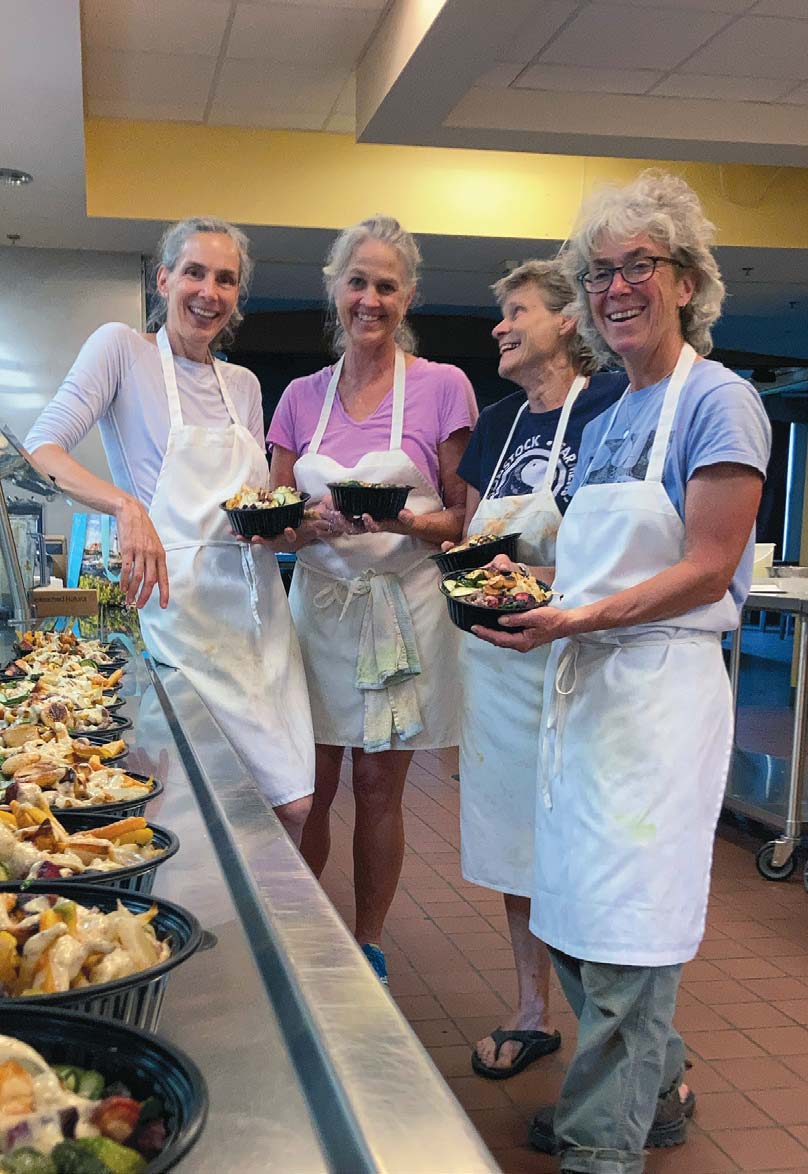
Stalwart board members Diana Pagnucco, Mary Beth Hatheway, Moira Thiele, and Maria Reade guide the show each week. Photo courtesy Grateful Hearts
Diana Pagnucco has been a board member for three years. Why does she volunteer? Without hesitation she replied, “This is a service that’s needed. It’s so much fun. It brings people together. It’s hard work. It’s two days in the kitchen for the volunteers but seven days for the planning team to figure out what’s next. The big reward is that what we all do together has meaning.”
Nan and Rick Forti oversee the packaging later in the week. The couple relocated to Manchester from Philadelphia. They didn’t know anyone and wanted to get involved, and get involved they did. Referred to as the “packaging gurus,” this husband and wife team brought the crucial packaging process to the next level. They point out that “leaders just appear out of the blue when needed.”
Dick Bailey was washing mountains of pots and pans. When asked why he was here, he said, “Well, the girls like to cook. I want to be of use. I do dishes or whatever else is required. Everyone is everywhere. There’s a lot of very positive energy in this kitchen, and the best thing is there are no prima donnas.”
Volunteer Judi McCormick enjoys showing up because she likes working with people that she doesn’t know and getting to know them better. “I feel like I’m part of something very special. I’ve learned to be a way better cook, and I really look forward to coming here. We’re all making a difference.”
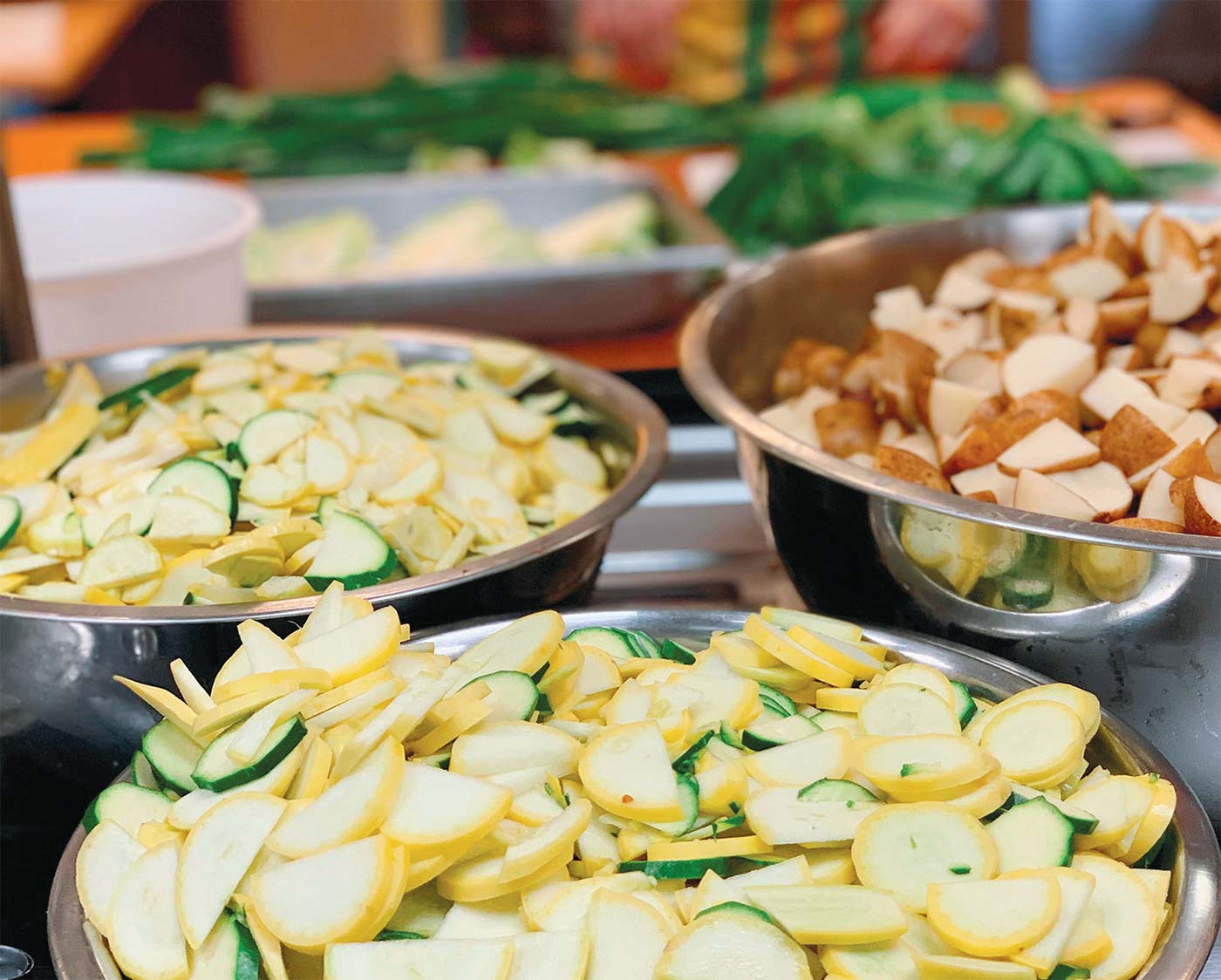
Grateful Hearts meals begin with fresh produce largely donated by local farms. Photo courtesy Grateful Hearts
Perhaps the best way to describe the dynamics in this kitchen is electrifying. No one gets upset or frustrated. Everyone works together like a well-oiled machine, but it wouldn’t happen without a head mechanic named Maria Reade. Yes, the same Maria whose words have graced the pages of this esteemed magazine for the last decade.
Maria is one of those people who doesn’t see herself as all that special, but she is. Grateful Hearts works because of Maria’s demeanor. She knows what she wants and how to get it done. Asked how she orchestrates all the tasks, from keeping track of inventory to creating the menu to communicating weekly with all the volunteers, she laughs and says, “It all comes down to shared Google docs with my wing women and index cards in my back pocket. Couldn’t run this circus without those two polar opposite techniques.”
There are many spokes to this successful wheel. Eight primary farms in the area have been extremely loyal and generous partners over the years. They donate crates of produce at the end of the Dorset Farmers Market, which board member Heidi Lynn picks up. Heidi and Maria collaborate with the farms year-round as they have product to move. “We’ll get a text or a call from a farmer saying, ‘I have a hundred pounds of winter squash for you if you can come down and pick it up,’ and one of us will go to the farm and load up,” says Heidi. “It’s relationships like these that make this organization so remarkable.”
“What’s the key to our success?” Maria Reade asks rhetorically. “A deep and talented team of leaders and dedicated volunteers. Good communication and immense planning. Total trust, faith and respect in one another. It’s not one person. We all contribute our talents. This program could not exist without the support of Burr & Burton Academy who graciously loan us their commercial kitchen three afternoons a week; the Hildene Farm where we store our produce in their walk-in cooler; and the Manchester Community Food Cupboard. Director Martha Carey is a phenomenal partner, sourcing staples for us as needed and encouraging her clients to stock up with our meals. The Food Cupboard serves more than 200 families each week, and that number only increases. We are entirely funded by donations; no grants. Bottom line: we have spent more than ten years feeding and collaborating with our broad communities, and people trust us. We take that trust seriously.” And then she pulled a spoon out of her back pocket to taste the butternut soup.
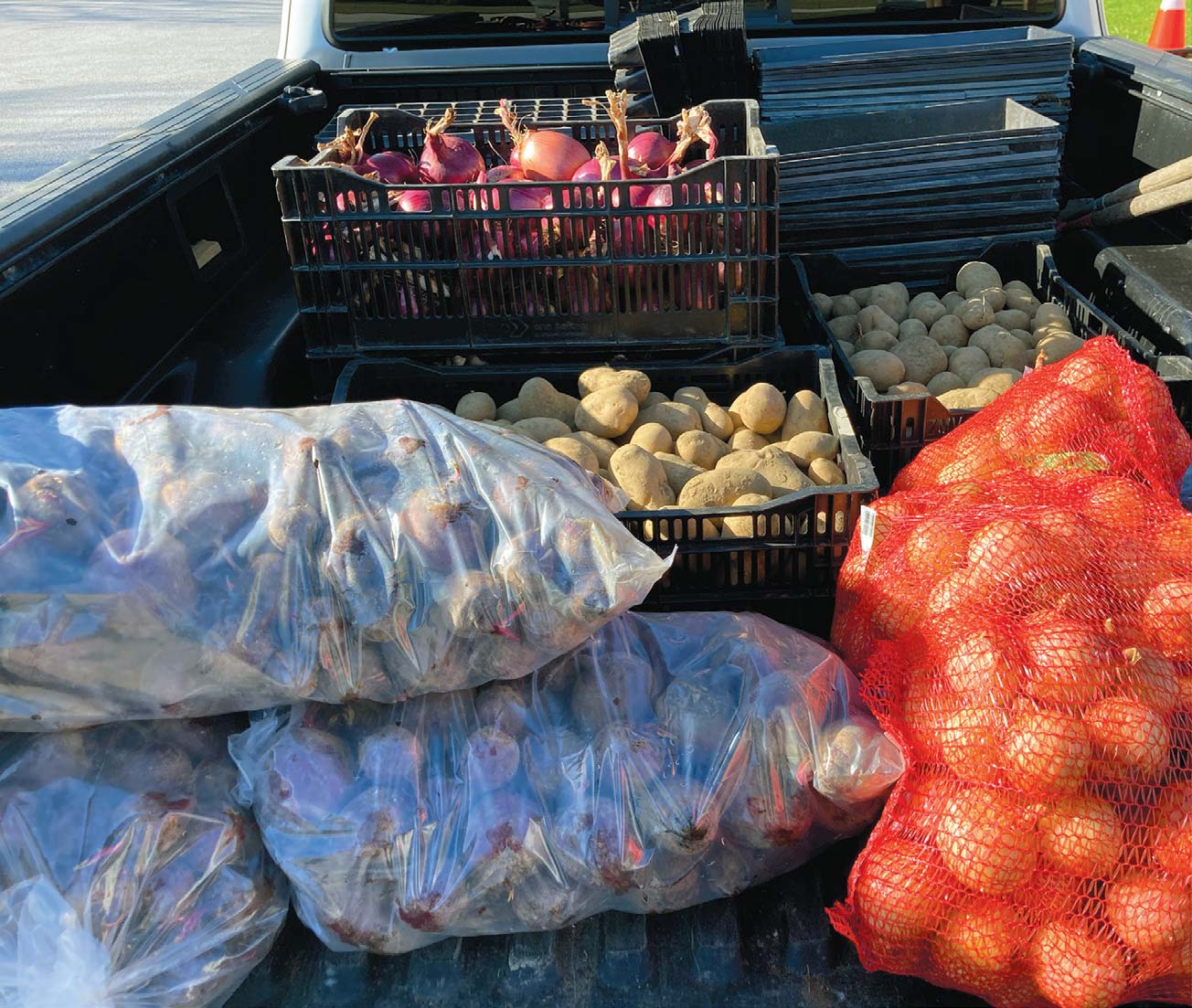
Maria’s truck bed contains the first load of the day’s produce that will be transformed into more than 1,000 servings distributed through food pantries in Manchester and Arlington. Photo courtesy Grateful Hearts
Martha at the Food Cupboard is a huge cheerleader for Grateful Hearts. “Thanks to their dedicated efforts, thousands of pounds of food are no longer being discarded. Instead it’s going to people who now can enjoy really good tasting, high quality meals.”
So many people are grateful for Grateful Hearts and for the people that make it all happen. You might want to consider volunteering. Or start a chapter in your community. Not only will you make a difference in the lives of others, you might just learn a lot about yourself.


